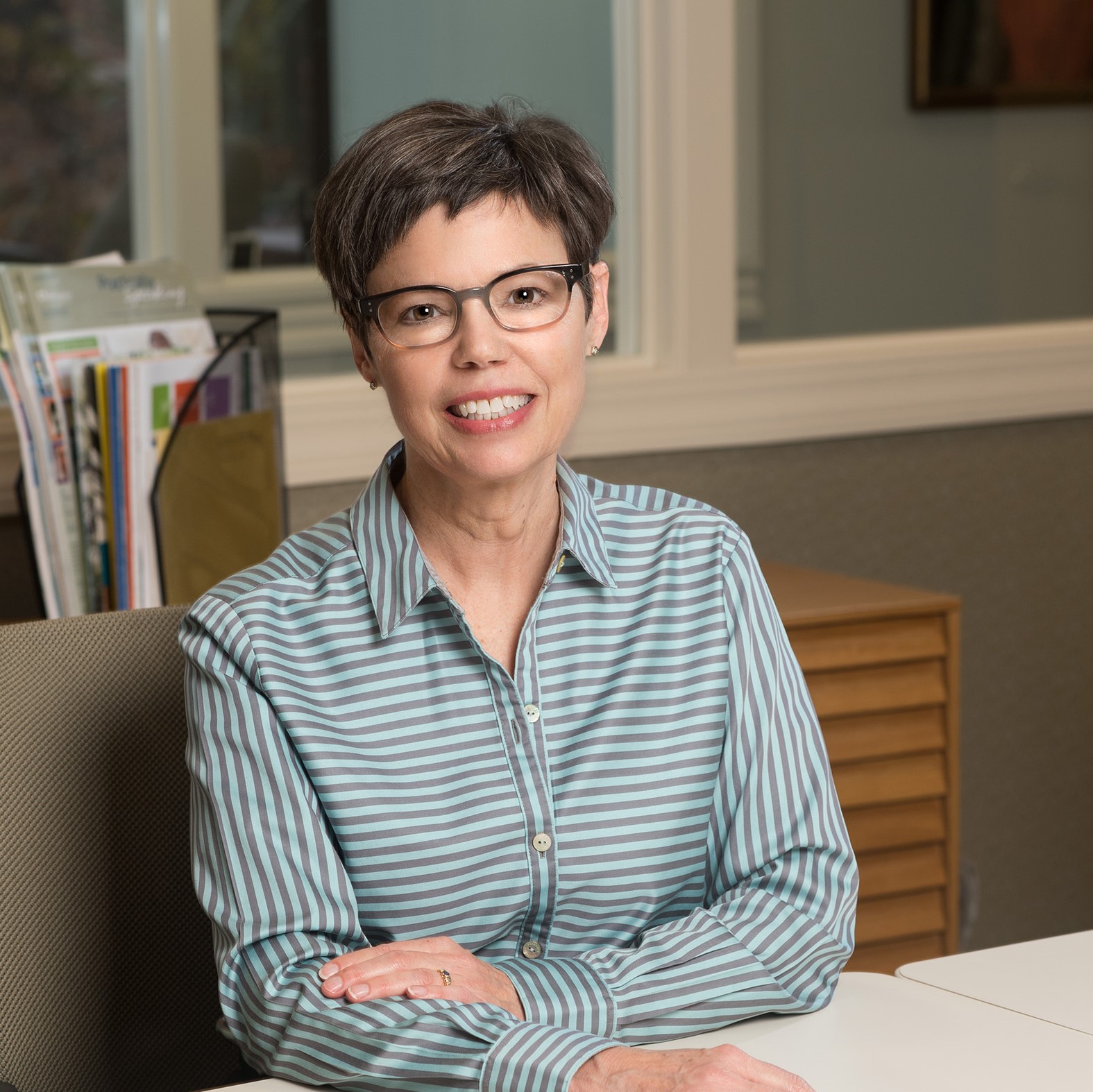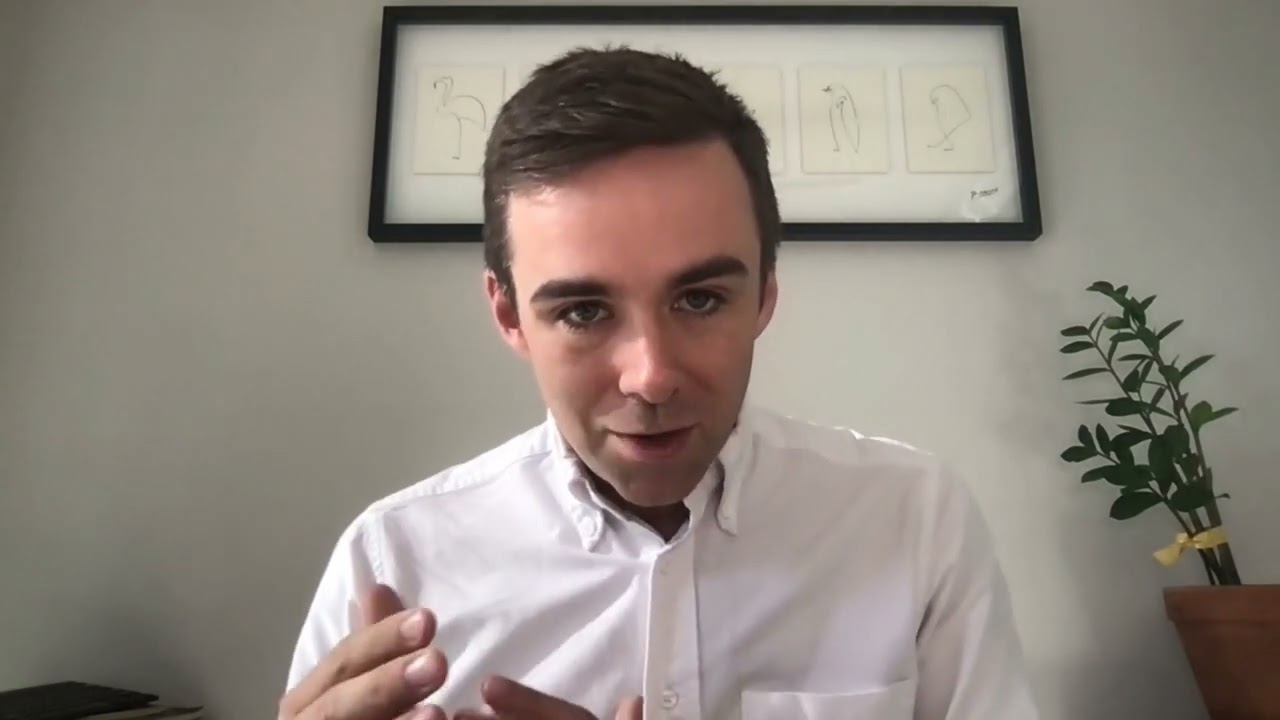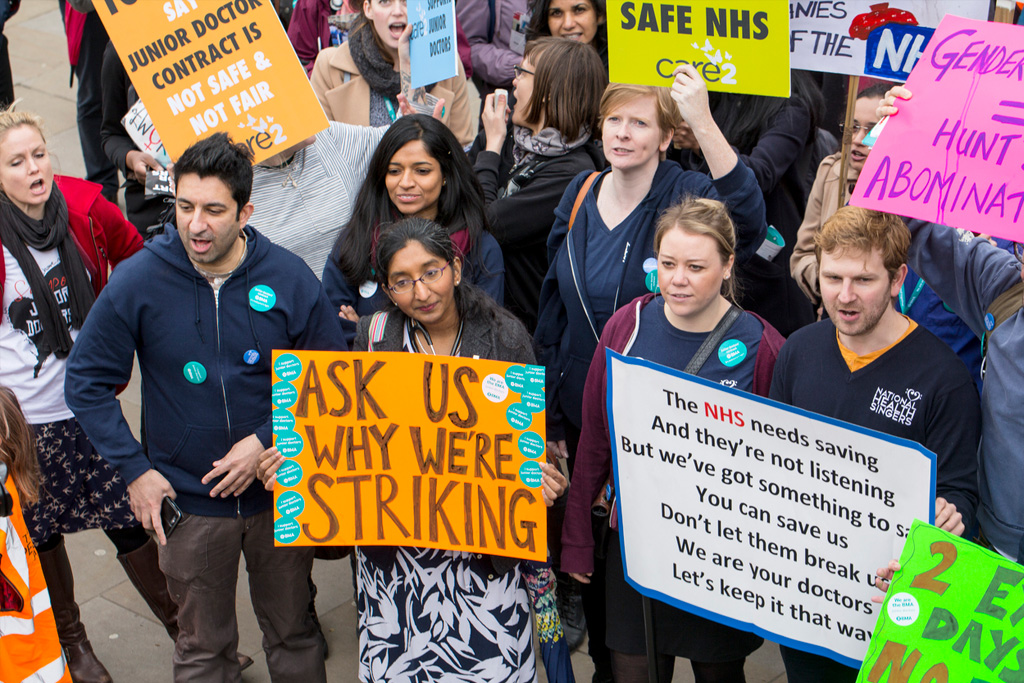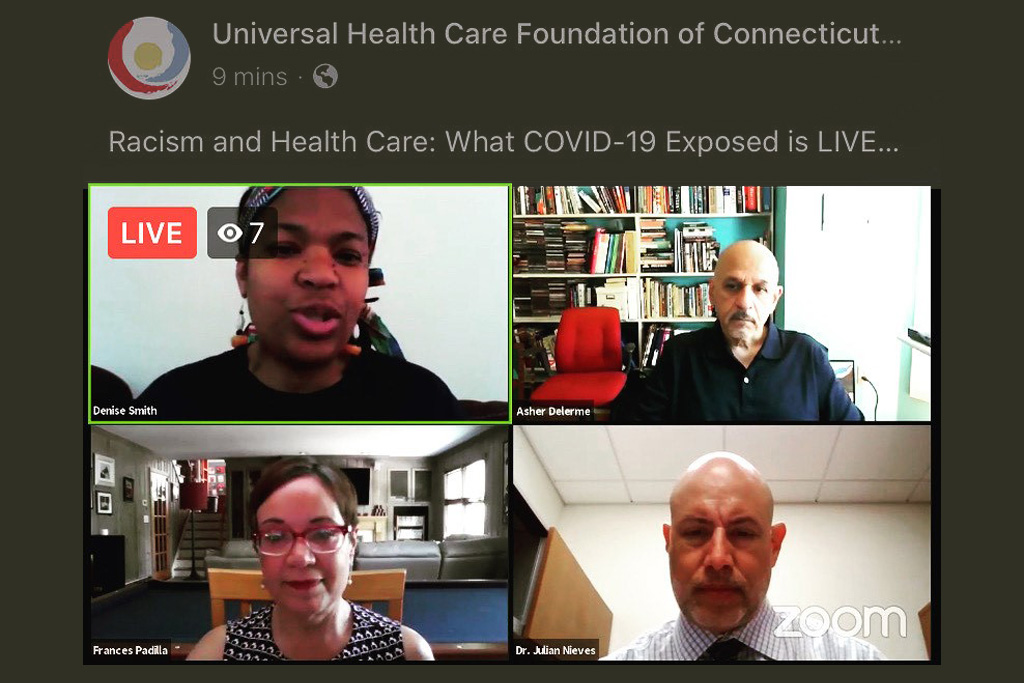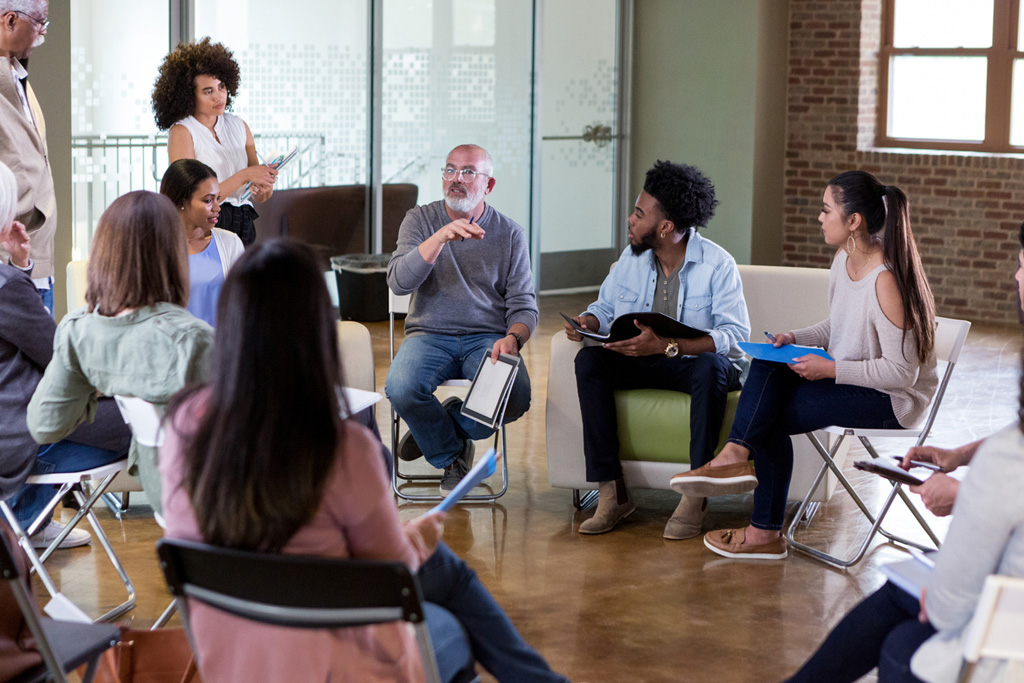Transforming Evidence Use
August 19, 2020
Donaghue Foundation President and co-Trustee
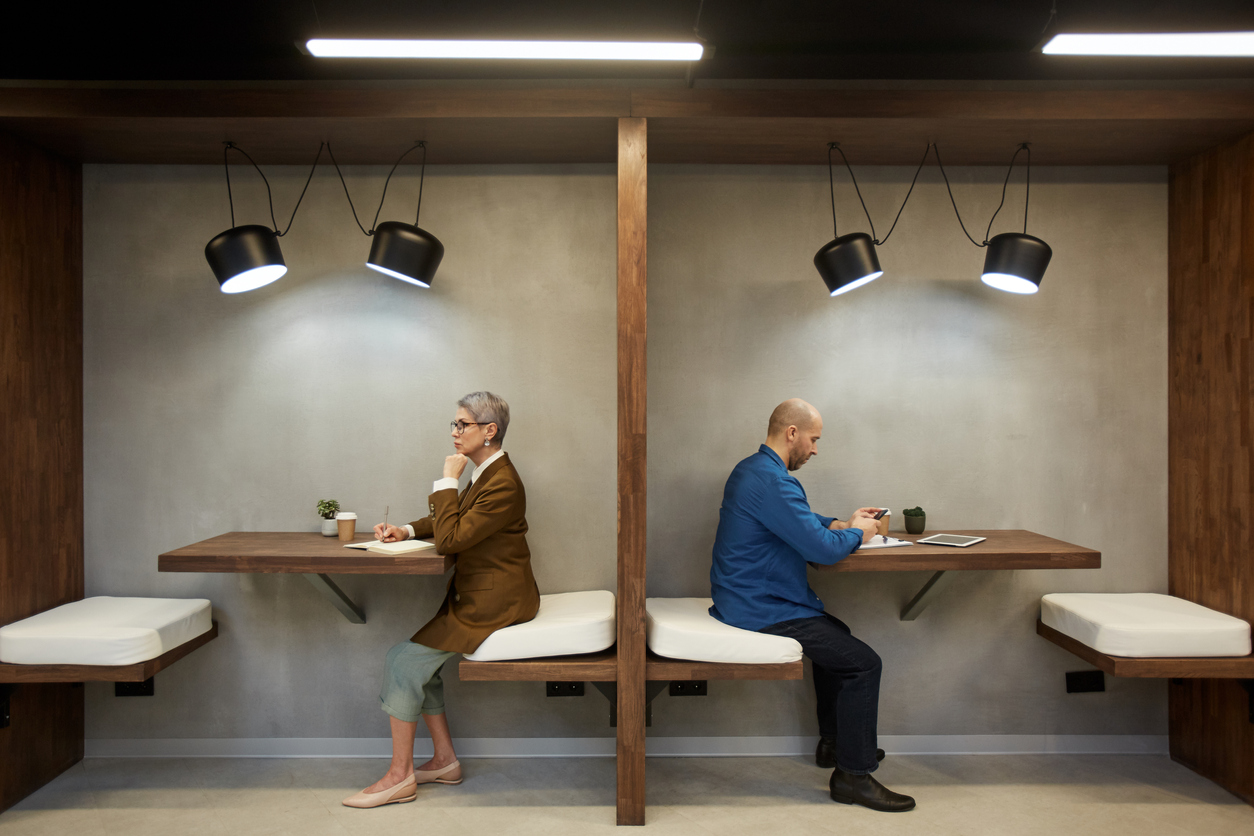
Side view full length portrait of two adult people separated by wall while sitting in separate cafe booths, copy space
A huge gap exists between the creation of research evidence and its use to improve the public good. Our current COVID-19 situation, with many political leaders and a good portion of the American public ignoring recommendations from scientists, may be an extreme example of this, but even in more normal times there is a long standing disconnect between the development of research evidence and its translation into the use it is intended.
Donaghue has recently engaged in a cross-discipline, multinational effort to transform and increase the way research evidence is used. This effort was spearheaded by the W.T. Grant Foundation, which funds education research, and a component of the Pew Charitable Trusts that funds environmental research. The initial meeting of this group at the Wellcome Trust in London this past December was attended by organizations with research missions beyond health, education, and the environment such as child welfare, social justice, and climate change. These organizations were from the U.K., E.U., Canada, South Africa, and the U.S.
But what could this group that is so diverse in their missions, geography and size achieve to advance the use of evidence? We expect to benefit from learning about and supporting the growing research on evidence use across multiple fields. Currently the effort to discover how research evidence is actually used and how policy makers and practitioners decide to incorporate evidence into their decision making is done only in small studies, and their findings aren’t well known within, let alone across, disciplines. Knowing more about how evidence is actually used will inform our grant making. Currently we operate with assumptions that certain features of our application process will enhance the prospect of research findings being applied, but we really don’t have good evidence of that.
This is also another way to be accountable for our mission. Research funders, including Donaghue, may be guilty of overestimating the value of what they fund because we believe so strongly in what they are trying to achieve with that funding, i.e., better education and health, reducing poverty and injustice, and creating a more sustainable environment. By asking how much of what we do is actually used and how our funding could be more beneficial helps us to remain mindful of our goal. It’s easy to feel certain that we’re doing our best when we hear the warm words of thanks from our grantees, but we need to challenge ourselves to ask about the real value of what our work accomplishes beyond writing a check for a study.
In some ways, participating with this group is a big step for our small organization. Yet we view it as continuing our evolution in considering whether the research we fund is actually put to use for practical benefit and devising ways to assess that when we make funding decisions. Even in the foundation’s early years when it funded basic research, applicants needed to describe how their study might advance health improvement and to complete an assessment of the study’s potential benefit. Now, when our programs focus solely on health services research, we have incorporated several ways to help reduce the knowledge-use gap:
- Twelve years ago we expand the areas of expertise in our application review panels to include representatives of the potential knowledge users.
- We require that our applicants include in their project a healthcare partner or stakeholder who represents the intended user of the research findings.
- Since 2013, the R3 – Making Research Relevant & Ready grant program provides funding for Donaghue grantees to hire experts to help bring their research innovation to a broader audience.
- Donaghue staff members participate on committees and working groups, such as the Connecticut Department of Public Health advisory committee on healthcare acquired infections and the Connecticut Office of Health Strategy’s cost growth target group, to name two of them. This gives us a front row seat in the messy work of using evidence in policy and thereby leads to our better understanding of the myriad of factors that inform the role of evidence in decision making.
- We work hard to develop and sustain relationships with aligned organizations who also value the evidence-to-action challenge. In fact, this is what has led to our attending the December meeting of the Transforming Evidence Use group.
Donaghue is proud of what we’ve achieved in the research use arena. However, we know there are opportunities to make our purpose even more meaningful. This makes us look forward to our continuing involvement with the Transforming Evidence Use group and our hope to learn more about the best ways to fund the research that creates that useful evidence.
Back Issues

The Room Where Research Happens: How I Became Part of a Group that Was Open to Research the Topic that Few Seemed Willing to Discuss

